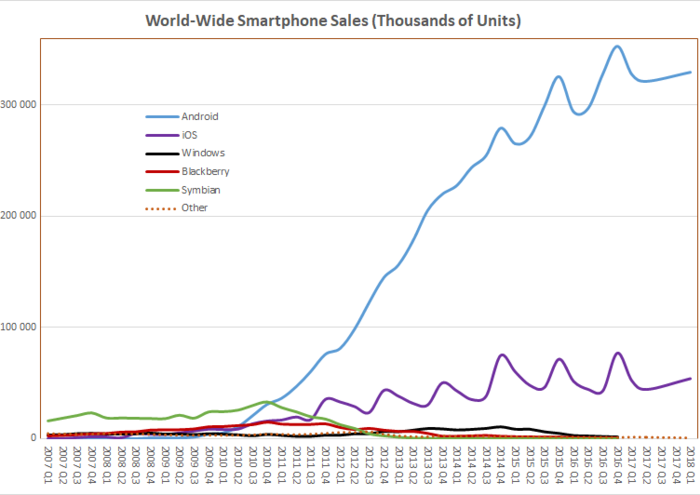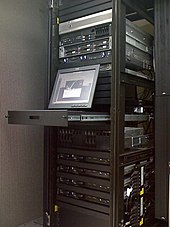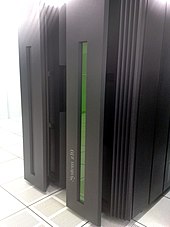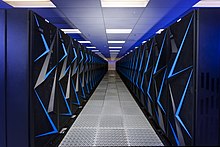Usage share of operating systems
[11] According to Gartner, the following is the worldwide device shipments (referring to wholesale) by operating system, which includes smartphones, tablets, laptops and PCs together.macOS = 1% Shipments (to stores) do not necessarily translate to sales to consumers, therefore suggesting the numbers indicate popularity and/or usage could be misleading.Not only do smartphones sell in higher numbers than PCs, but also a lot more by dollar value, with the gap only projected to widen, to well over double.My understanding of iOS is that the user base was previously thought to be around 800 million strong, and when you factor out Macs and other non-iOS Apple devices, that's probably about right.However, in the end, according to Gartner, PC shipments grew 10.7% in the fourth quarter of 2020 and reached 275 million units in 2020, a 4.8% increase from 2019 and the highest growth in ten years."In 2020, Chromebook shipments increased over 80% to total nearly 30 million units, largely due to demand from the North American education market."[26] According to Gartner, worldwide PC shipments declined by 16.2% in 2022, the largest annual decrease since the mid-1990s, due to geopolitical, economic, and supply chain challenges.While that number is far higher than the 200-plus million units globally projected by research firms IDC, Gartner and Forrester, Envisioneering analyst Richard Doherty says the rival estimates miss all the cheap Asian knockoff tablets that have been churning off assembly lines.[..]The top tech purchase of the year continued to be the smartphone, with an expected 1.5 billion sold worldwide, according to projections from researcher IDC.This conflicts with statistics from IDC that say the tablet market contracted by 10% in 2015 with only Huawei, ranked fifth, with big gains, more than doubling their share; for fourth quarter 2015, the five biggest vendors were the same except that Amazon Fire tablets ranked third worldwide, new on the list, enabled by its not quite tripling of market share to 7.9%, with its Fire OS Android-derivative.[30] Gartner excludes some devices from their tablet shipment statistic and includes them in a different category called "premium ultra mobiles" with screen sizes of more than 10" inches.The rest may as well not even exist [..] These figures, which cover the second quarter of 2016, show that Android has actually increased its market share by 4 percent over the last year.I think it's fair to declare Android the winner in the mobile operating [system] wars at this point.As of 9 May 2019, the biggest smartphone companies (by market share) were Samsung, Huawei and Apple, respectively.Although in units sold by Apple are declining, they are almost the only vendor making any profit in the smartphone sector from hardware sales alone.[69] iOS has been the highest ranked OS in Jersey (a British Crown dependency in Europe) for years, by a wide margin, and iOS was also highest ranked in Falkland Islands, a British Overseas Territory, for one quarter in 2019, before being overtaken by Android in the following quarter.[98] StatCounter web usage data of desktop or laptop operating systems varies significantly by country.It has also happened for all individual continents[108][109][110] (at least for some weeks, and also for the United States where the smartphone share reached 54.26% in July 2022,[111][112][113][114] and also that high in 2021).... actual OS usage (based on web browsing), while Microsoft records the number of devices Windows 10 is installed on.[132] By Q1 2018, mobile operating systems on smartphones included Google's dominant Android (and variants) and Apple's iOS which combined had an almost 100% market share.[175] Alternatively, Apple, with iOS plus their non-mobile macOS (9.33%) has 20% more share (6.7-percentage points more) than Microsoft's Windows in the country where both companies were built.[183][clarification needed] In the week of 7–13 November 2016, smartphones alone (without tablets) overtook desktop for the first time, albeit for a short period.[184] Examples of mobile-majority countries include Paraguay in South America, Poland in Europe and Turkey and most of Asia and Africa.[185] However, in some territories of the United States, such as Puerto Rico,[186] desktop is significantly under majority, with Windows just under 25%, overtaken by Android.[200][201] Mobile-majority applies to countries such as Paraguay in South America, Poland in Europe and Turkey; and the continents Asia and Africa.Poland has been desktop-minority since April 2015,[242] because of Android being vastly more popular there,[243] and other European countries, such as Albania (and Turkey), have also crossed over.Usually the surveys are not based on a random sample of all IP addresses, domain names, hosts or organisations, but on servers found by some other method.They are used to process large sets of data, for example enterprise resource planning or credit card transactions.Gartner reported on 23 December 2008 that Linux on System z was used on approximately 28% of the "customer z base" and that they expected this to increase to over 50% in the following five years.During the same period, companies found that servers based on microcomputer designs could be deployed at a fraction of the acquisition price and offer local users much greater control over their own systems given the IT policies and practices at that time.[266] As of 2010[update], while mainframe technology represented less than 3% of IBM's revenues, it "continue[d] to play an outsized role in Big Blue's results".





computersoperating systemAndroidLinux kernelWindowsembedded devicesdesktop LinuxChromeOSiPadOStop 500supercomputersLinux distributionUbuntuDebianembedded systemsembedded management processorAndroid/LinuxGartnerwholesaletabletslaptopsCOVID-19eMarketerinstalled baseGoogle PlayUSA TodayHuaweiAmazon FireFire OSpercent [point]International Data Corporation (IDG)BlackBerrySymbianStatCounteruser agentJavaScriptWindows PhoneMicrosoft Windowsunincorporated territory of the United StatesJerseyCrown dependencyBritish Overseas TerritoryMadagascarbrowser detectionDarwinWikimediaFreeBSDpre-installed operating systemWindows 10Windows 11ArmeniaThanksgivingStack OverflowMac OSSteamOSmobile operating systemIPhonemobile operating systemssmartphonesGoogleStatistacomScoreTablet computers2-in-1 PCsphabletsterritories of the United StatesPuerto RicoAustraliaOceaniaTurkeyWindows 7AfricaNigeriaSeries 40South AfricaSaudi ArabiaEthiopiaServerscolocation centreInternet based serversmarket shareweb serversmail serversDNS serversUnix-likeRed Hat Enterprise LinuxSystem z10Mainframesenterprise resource planningcredit card transactionsLinux on IBM ZRed HatMicro FocusSUSE Linux Enterprise Servermainframemajor original mainframe producersSierrastockpile stewardshipTOP500supercomputer operating systemASCI WhiteDesktoplaptop"Linux"EmbeddedEE Timesembedded LinuxLynxOSWindows 10Windows Embedded CompactServer (web)CentOSGentooSolarisWindows Server 2019WS2016WS2012SmartphonetabletSupercomputerCustomComparison of operating systemsList of operating systemsTimeline of operating systemsUsage share of web browsersWikimedia Foundation